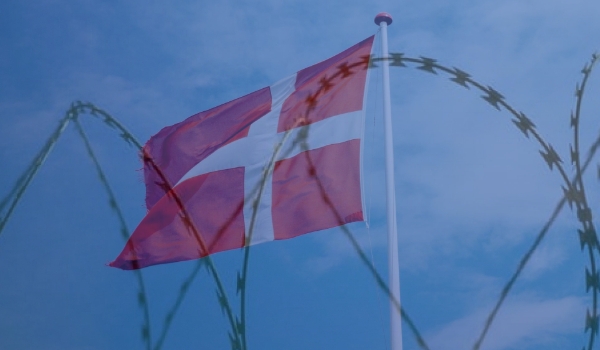The former Danish Minister for Immigration and Integration has been sentenced to 60 days imprisonment over the illegal separation of asylum couples. Amnesty International has handed over almost 100,000 signatures from Danes urging the current immigration minister to stop revoking the protection of Syrians. 75 per cent of the population believes that the integration of “non-western” new Danes is going significantly worse than it is in reality.
Former minister Inger Støjberg has been sentenced to a jail term in an impeachment trial (Rigsretssag). Støjberg was found guilty by 25 of the 26 judges presiding over the case – 13 Supreme Court judges and 13 politically appointed judges – for illegally and knowingly separating 23 asylum seeking couples. The couples were separated in 2016 on the basis that at least one member was under-aged. This however took place without an individual assessment as required by Danish and human rights law. The impeachment trial was the first of its kind in 30 years and only the sixth in history. Støjberg, currently serving as an independent MP after leaving the centre-right party Venstre, is known for her tough stance on immigration and has been courted by the far-right Danish Peoples Party. However, with the Danish parliament set to vote on her right to serve as an MP, her political future remains unclear.
Amnesty International’s Danish branch has handed over a petition with 95,055 signatures to Støjberg’s successor, Mattias Tesfaye, to stop the revoking of protection statuses for Syrians. Tesfaye demanded in June 2020 an acceleration of reassessments of the cases of hundreds of Syrian nationals from the Damascus area, either on the controversial temporary subsidiary protecting status (section 7.3 Danish Aliens Act) or subsidiary protection status (section 7.2 Danish Aliens Act). In spring 2021, the Danish Refugee Appeals Board (Flygtningenaevnet) declared the situation in the Rif Damascus governorate (greater Damascus) safe enough for return, widening the geographical area considered safe by Danish authorities. 186 Syrians have had their protection status revoked: however, the Flygtningenævnet has overturned 80 of these decisions (43 per cent of cases). Denmark is the only EU country besides Hungary (a few cases) to revoke protection for Syrians. This approach, as well as its legal basis, has been widely challenged by experts, the UN Refugee Agency and NGOs. While forced deportations cannot be carried out as Denmark does not recognise the Syrian regime and thus have no diplomatic ties, Syrians stripped of protection status are left in limbo with their lives put on hold, and many have been transferred indefinitely in pre-removal centres. In some cases, this has resulted in family separation. 20 year old Mahmoud Almohamad, who was part of Amnesty’s delegation handing over the signatures, has seen his parents removed to a pre-removal centre. Other Syrians with revoked status have started to leave Denmark for other EU member states in fear of possible deportation. Reportedly, several Syrian families have been granted subsidiary protection in Germany after they arrived from Denmark These decisions are apparently based on court rulings that Denmark cannot be considered safe due to the practice of revoking protection and the pursuant risk of refoulement. Thereby the families are avoiding transfers under the Dublin regulation.
Denmark’s current government, led by social democrats, has continued a trend of increasingly harsh asylum and migration policies. These were summarised by ECRE Director Catherine Woollard in an editorial: “Denmark vies for the top spot in the list of bad guys, and often does so deliberately and proudly, in order to – supposedly – deter people from going there. From the notorious threat to take jewelry from refugees, to the “zero integration” policy, to now, a new low: the plan to send refugees back to Syria – not eventually, not when it is safe, not once the Assad regime has fallen or been constrained by a “peace” agreement – but now”. With leading politicians often scapegoating asylum seekers and refugees and media coverage often confirming negative stereotyping, it is no big surprise that the Danish population has a distorted views of integration in their country. A recent survey revealed that while the people most skeptical of immigration also held the least correct assumptions on the actual integration situation in Denmark, a total of 75 per cent of the population believe that it is significantly worse than the reality. When asked factual questions about labour market, education and democratic values, the reality was far more positive than assumed by respondents. For instance, the share of descendants of parents with ‘non-western’ background convicted of crimes fell from 5.4 per cent to 3.5 per cent between 2012 and 2019. Yet, on average the population believed it had increased dramatically to 20 per cent. However, for young refugees inequalities relating to inclusion and integration persist. A comparative report by Scandinavian researchers concludes: “Young refugees in Denmark are falling behind in the areas of education, labour market participation and health when compared with both the country’s majority population and similar refugee groups in Finland, Norway and Sweden”.
For further information:
- ECRE, Editorial: Wait… are we the baddies? Something Rotten in the State of Denmark, April 2021
- ECRE, Op-ed: Danish Externalization Desires and the Drive Towards Zero Asylum Seekers, March 2021
Photo: ECRE
This article appeared in the ECRE Weekly Bulletin. You can subscribe to the Weekly Bulletin here.

